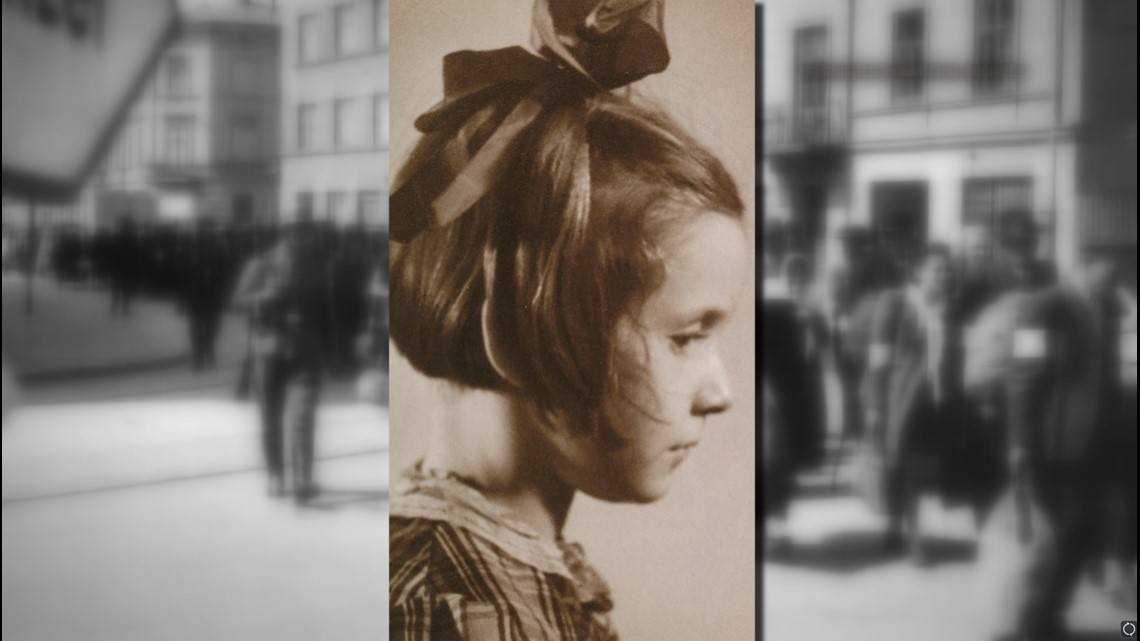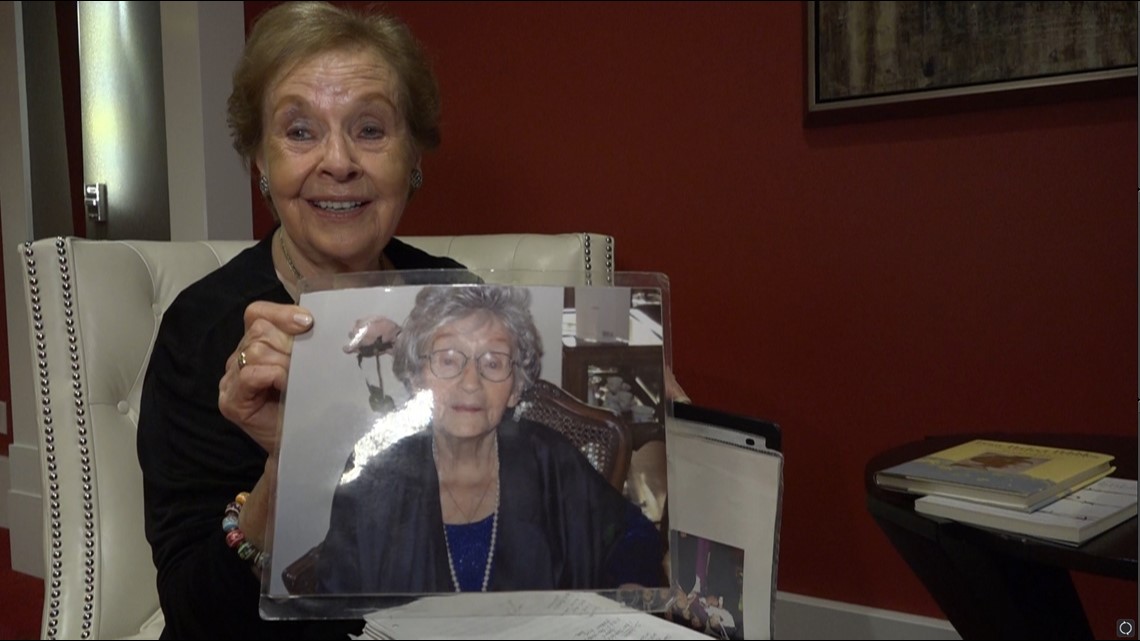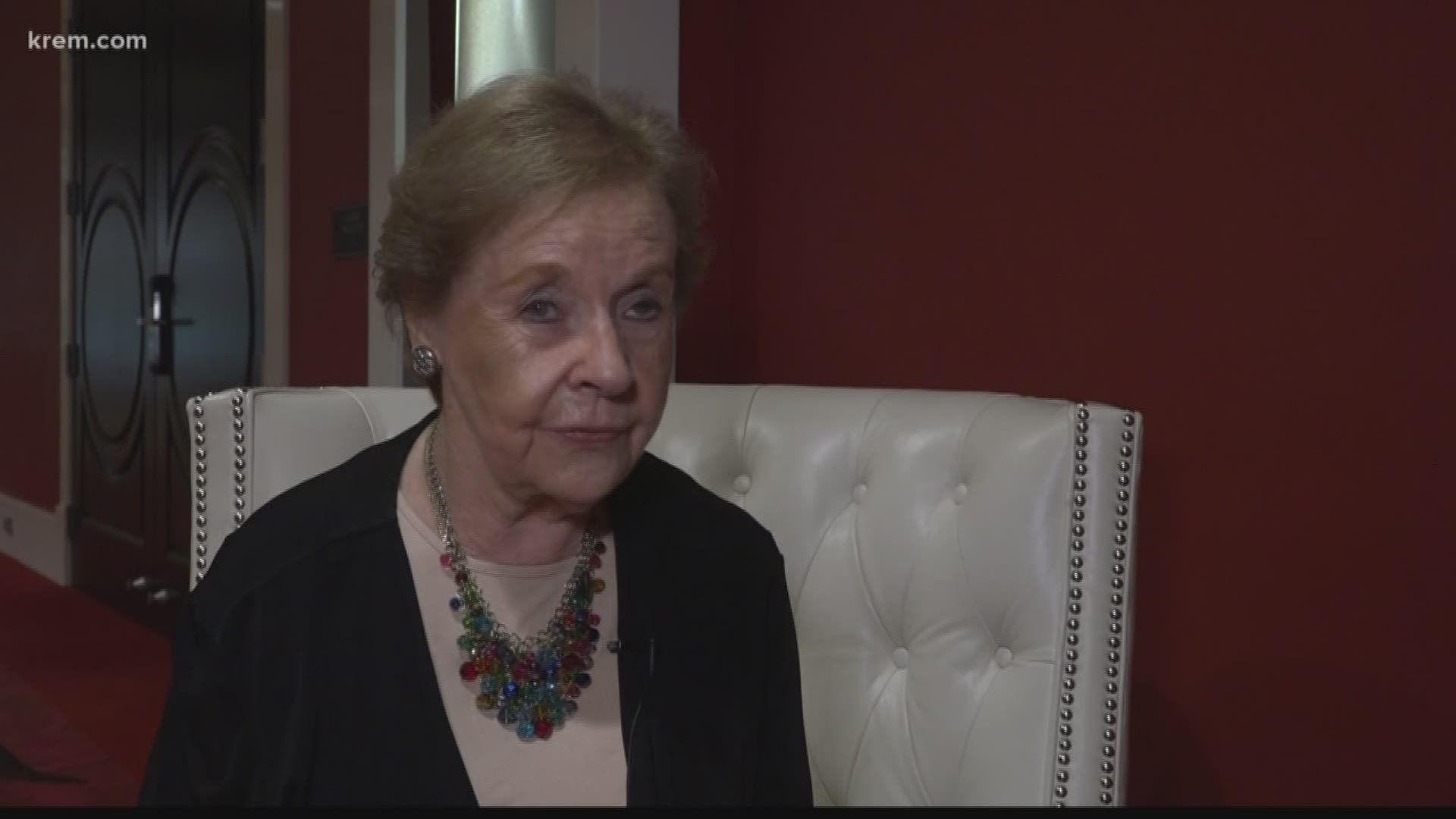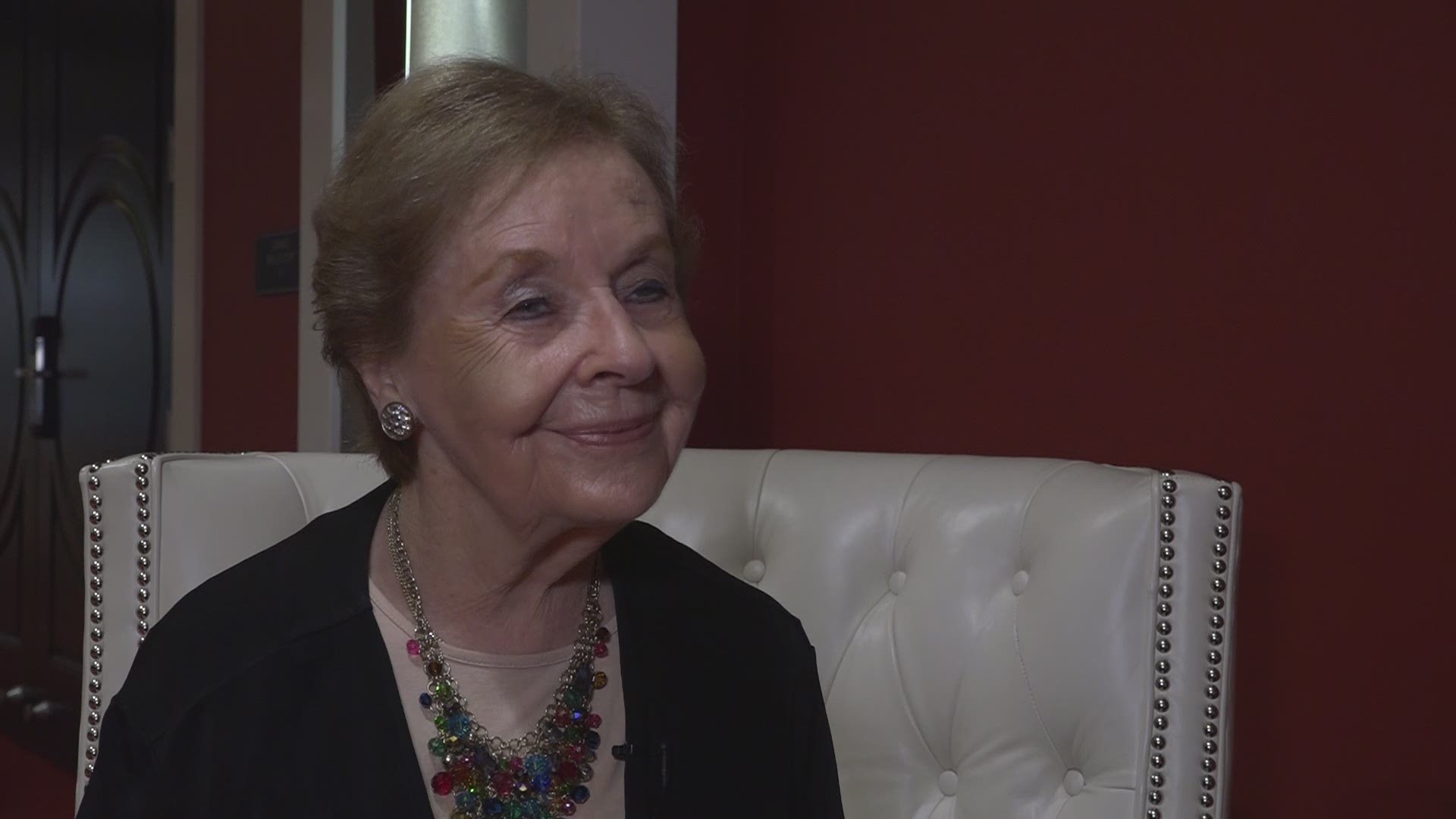SPOKANE — She greeted me with a smile and a short story of her journey from New York to Spokane. Marion Blumenthal Lazan and her husband Nathaniel had “schlepped” across the country for her first speaking engagement in Washington State.
It was a first for me as well. You hear about people like Marion and what they have had to endure, but you might not ever get a chance to meet these people. People who have survived what is described by historians as one of the worst acts against humanity in the history of the world.
The Holocaust was the mass killing of millions of Jews and others in Europe from 1933 to 1943.
Marion, her parents and younger brother found themselves trapped in Nazi Germany. They spent six and half years living in refugee, transit and concentration camps.
She told me the details of her time in the camps as we sat in the lobby of the Davenport Grand Hotel.
"There are no pictures or words that can truly describe the horror during that time. The smell, the fear cannot be described in photos,” Marion said.
When they were finally liberated she was ten-years-old. By then they were at the notorious Bergen-Belsen camp in Germany. Marion weighed just 35 pounds. She said her 37-year-old mother weighed 70 pounds.


Marion carried a bag with her. A bag full of the things she uses to tell her story, the books she’s written, the pamphlets she passes out and the pictures of her family. She pulled out a picture of her mother Ruth. Ruth died just weeks shy of her 105th birthday. Marion said her mother was always a source of strength for her during their years in the camps.


She then pulled out what she described as the “only prop” she uses for her lectures. It was the gold, Star of David patch she was forced to wear to be identified as Jewish.
“It was just another way to denigrate us, isolate us,” she said.
This piece of fabric is a physical reminder of the years of suffering she and her family had endured. She said there is not a day that goes by she does not think about her time in the camps. But she has turned that torment into an opportunity to educate others.
"I speak in schools, universities and churches and we have to begin with our children,” Marion said. “We have to make them understand the importance of respect, tolerance and compassion toward one another regardless of their religious beliefs, color of skin, national origin, it doesn't matter."
Marion has traveled the world sharing her story, her husband of 65 years by her side. She has authored books and lectured to thousands of people. Nathaniel doubles as her photographer and biggest supporter.
“I am running with my husband as fast as I can, as long as we are able. It's difficult, but I also realize the importance of doing this now while there is still time,” Marion said.
There are fewer and fewer Holocaust survivors around the world. Most of them are reaching the end of their lives. Marion is well aware of this, so she plans on speaking to as many people as possible.
"There are so many lessons to be learned from this dark period of our history,” Marion said. "The Holocaust must be taught and kept alive, only then, can we guard it from ever happening again."
And perhaps her lessons of hope in the face of intolerance are needed now more than ever after the recent mass shooting at a synagogue Pittsburgh, Pennsylvania.
"It is just too sad that a tragedy has to happen before people get together and look at each other for who they are and not what they believe in,” Marion said.
There is something to be said to sit down across from a person who has experienced the worst of humanity, and still have hope for the future generations. Marion ended our discussion with this sentiment.
"I would like to wish your viewing audience, your listening audience, their children, their grandchildren and all succeeding generations a healthy, happy productive future in a world of love and peace."


